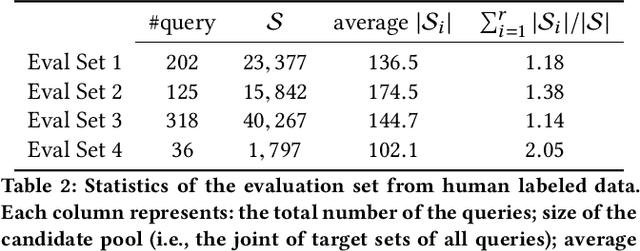Zero-Shot Heterogeneous Transfer Learning from Recommender Systems to Cold-Start Search Retrieval
Paper and Code
Aug 19, 2020



Many recent advances in neural information retrieval models, which predict top-K items given a query, learn directly from a large training set of (query, item) pairs. However, they are often insufficient when there are many previously unseen (query, item) combinations, often referred to as the cold start problem. Furthermore, the search system can be biased towards items that are frequently shown to a query previously, also known as the 'rich get richer' (a.k.a. feedback loop) problem. In light of these problems, we observed that most online content platforms have both a search and a recommender system that, while having heterogeneous input spaces, can be connected through their common output item space and a shared semantic representation. In this paper, we propose a new Zero-Shot Heterogeneous Transfer Learning framework that transfers learned knowledge from the recommender system component to improve the search component of a content platform. First, it learns representations of items and their natural-language features by predicting (item, item) correlation graphs derived from the recommender system as an auxiliary task. Then, the learned representations are transferred to solve the target search retrieval task, performing query-to-item prediction without having seen any (query, item) pairs in training. We conduct online and offline experiments on one of the world's largest search and recommender systems from Google, and present the results and lessons learned. We demonstrate that the proposed approach can achieve high performance on offline search retrieval tasks, and more importantly, achieved significant improvements on relevance and user interactions over the highly-optimized production system in online experiments.
 Add to Chrome
Add to Chrome Add to Firefox
Add to Firefox Add to Edge
Add to Edge